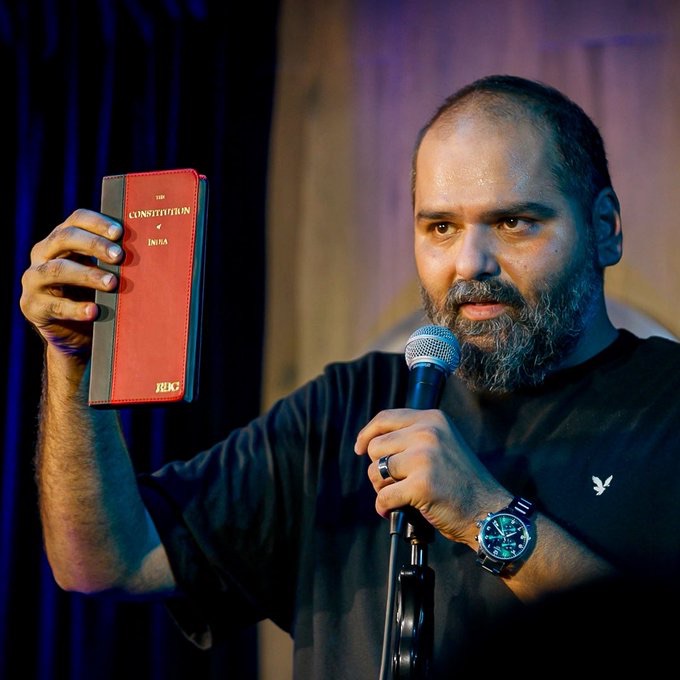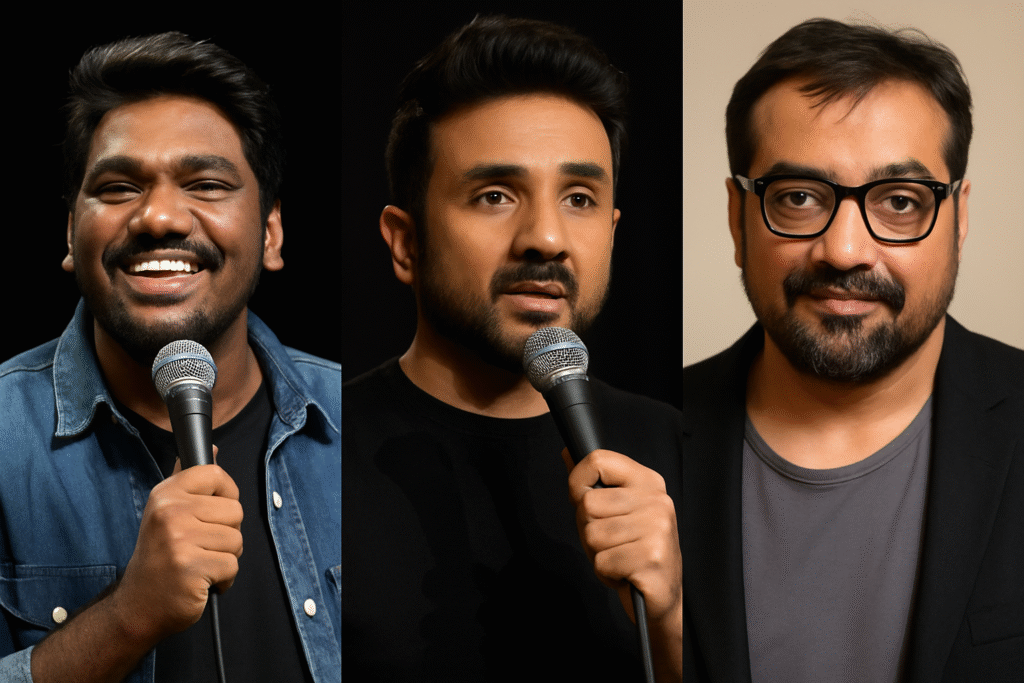A Discussion on Humor, Liberty, and the Role of the State
By Najeeb, Published on June 27, 2025
Introduction
When a journalist asked Delhi’s political leadership bluntly, “Will you allow and provide protection if comedian Kunal Kamra wants to perform in Delhi?” a new issue broke out. This seemingly straightforward query has sparked a nationwide dialogue about free speech, comedians’ place in democracies, and governments’ duty to defend creative voices, especially those that are divisive or critical.
Who is Kunal Kamra?

One of India’s most vocal stand-up comedians, Kunal Kamra is well-known for his political humor. He is a divisive character because he frequently makes fun of the judiciary, the media, and government policy. Critics see his content as offensive or provocative, while supporters see him as a courageous voice of dissent.
Kamra has experienced numerous flight bans, threats, legal warnings, and show cancellations throughout the years. He still performs, posts stuff online, and is active on social media in spite of the difficulties.
Delhi Question: What Started the Argument?
A journalist asked whether the local government would permit Kamra to perform and whether protection would be provided to guarantee his safety during a news event in Delhi.
This inquiry coincides with the cancellation of a number of Kamra’s performances in Bengaluru, Gurugram, and Surat, frequently due to pressure from right-wing organizations or “law and order concerns.” The query alone sparked a flurry of public responses, even if Delhi authorities did not directly respond.
Kunal Kamra’s Reaction
Kunal Kamra, never one to stay silent, took to X (formerly Twitter) with his trademark sarcasm:
“Will I be allowed to breathe next? Maybe I need Z+ security to tell jokes now?”
In another tweet, he wrote:
“Delhi or Dilli — comedy survives only if intolerance doesn’t.”
In a little video that he also posted, he reminded viewers that comedy should challenge authority rather than appease it.
Public Response: Loud and Divided
The internet exploded with reactions — both in support and against.
Supporters Say:
• “A democracy that cannot tolerate jokes is in danger,” say supporters.
• “Kamara has the right to perform, whether you like him or not.”
• “Kamra is the artist today, but any artist could be the artist tomorrow.”
Critics Say:
• “He goes too far and makes fun of everything holy.”
• “Why should taxpayers pay to protect someone who has wronged us?”
• “The right to insult is not granted by art.”
Voices from the Industry

Many comedians, writers, and artists have come out in support of Kamra.
Vir Das:
“If jokes scare the government, imagine what truth can do.”
Anurag Kashyap (Filmmaker):
“Censorship today is not from the government but from mob mentality. This is dangerous.”
Zakir Khan:
“The stage is sacred. It should be safe for everyone — even those who criticize us.”
The Legal and Ethical Debate
The Indian Constitution’s Article 19(1)(a) guarantees freedom of speech, subject to reasonable limitations. But when comedians are threatened by non-state actors, these limitations are put to the test. Legal experts contend that state officials must offer protection rather than refuse permission in the absence of a legal case or prohibition.
